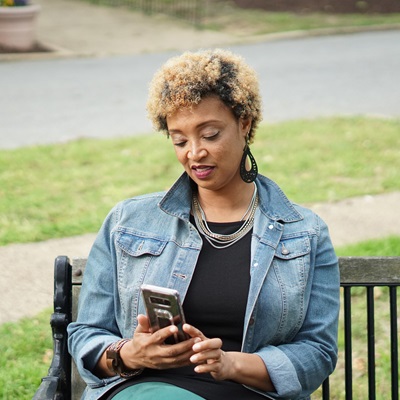- Dates2022-2025
- SponsorEPSRC
- Funded£3.3m
- PartnersHeriot-Watt University, University of Glasgow, Open University, University of York, Energy Systems Catapult
Digitisation and data are at the core of many consumer products and services, raising concerns for online harm that citizens face through online activity. Yet, how minority ethnic (ME) communities in the UK engage with these digital services and what risks they experience today and in the future are overlooked so far.
In collaboration with Dr Gina Netto (the overall project PI), Prof Lynne Bailey and Dr Wei Pang from Heriot-Watt University, Dr Mark Wong from the University of Glasgow, Prof Agnes Kukulska-Hulme and Dr Elizabeth FitzGerald from the Open University, and Dr Siamak Shahandashti from the University of York, the PRIME project will broaden our understanding of online harm and how it can be mitigated through new systems, tools and processes by focusing on ME communities' experiences of digitalised services, particularly in the areas of housing, health and energy.
We will draw on knowledge, methods and skills from social policy, cyber security and privacy, data mining and machine learning; human computer interaction, applied linguistics and educational technology. Working closely with REPHRAIN, we will engage with a wide range of individuals from ME communities, community organisations, public agencies and energy suppliers to identify and categorise the nature of the harms experienced, and assess the adequacy of existing systems and processes to counter them. We will translate this knowledge into the co-design and co-production of novel, effective and scalable social and technological harm-mitigating solutions through a Citizen-led Race Equity Living Lab (CREL).
The outputs will include policy guidance in the fields of housing, health and energy as well as cross-cutting recommendations for improving online services more generally; educational resources for harm mitigation to enable individuals and organisations to more effectively protect themselves; as well as better privacy-enhancing technologies (PETs) that counter discriminatory processes in digitalised services. We will also produce benchmark datasets, tools and models to enable organisations to address ethnic inequalities in service provision and demonstrate more accountability to the public in terms of greater transparency and equitable service outcomes.
Partner organisations include CEMVO Scotland, the Muslim Council of Britain, BRAP, the Mental Health Foundation, Public Health Scotland, the NHS Race and Health Observatory, the Scottish Government Digital Directorate, Energy Systems Catapult, the Convention of Scottish Local Authorities, the UK Collaborative Centre for Housing Evidence and the Scottish Federation of Housing Associations.
Impact and findings
As a part of the ongoing PRIME project, we conducted a workshop in London on 12 July 2023.




